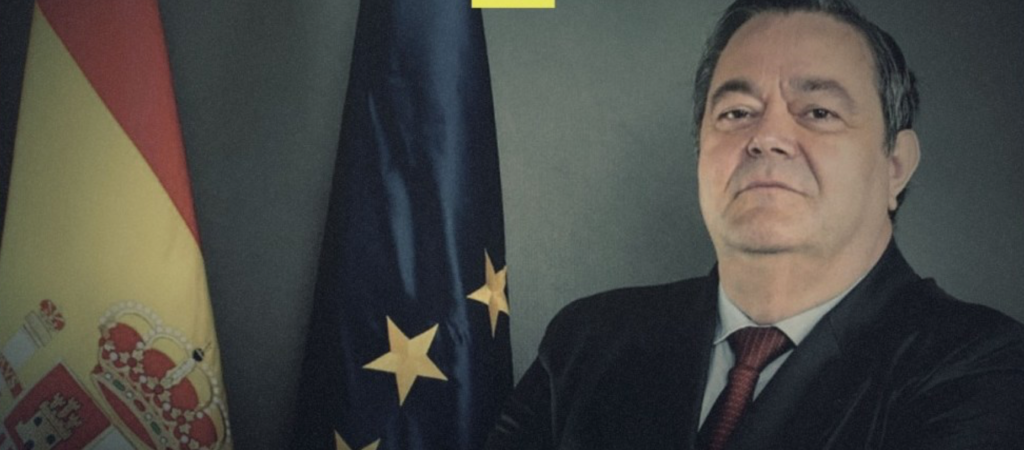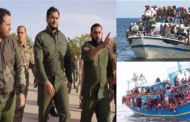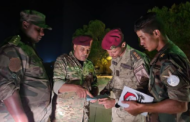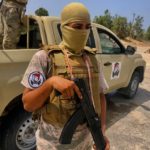Nov. 8, govt spox Hammouda says FM Al-Mangoush to continue work as normal, dismissing PC-issued suspension, travel ban.
High Council of State head AL-Mishri calls on Libyans to boycot “flawed” elections , hold sit-in at High National Electoral Committee HQ.
Nov. 14, Libya PC hails Nov. 12 Paris Libya Conference outcomes, calls for “simultaneous” presidential, parliamentary elections.
Nov. 14, Turkey presidential spox says Turkey military to remain in Libya as “stabilizing force” per agreement with local govt, rejects comparing Turkey military to mercenaries.
Nov. 14, late Col. Gaddafi’s son Saif al-Islam registers as presidential candidate.
TRIPOLI
- on Nov. 11, Libya’s Coast Guard successfully rescued 65 Egyptian migrants, who were en route to Europe. The migrants disembarked in Tripoli, and were transferred to a migrant shelter.
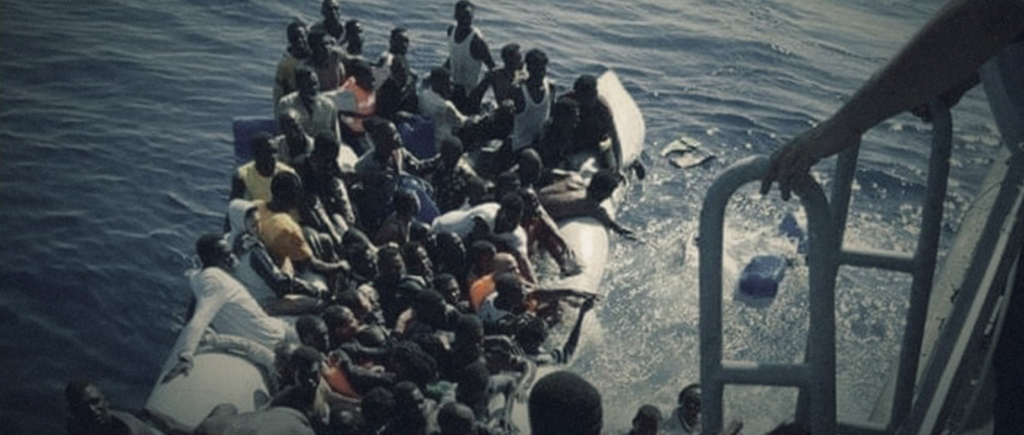
TOBRUK
- on Nov. 9, the Head of the Criminal Investigation Department of Tobruk, Moqaddem Al-Muzaini confirmed the arrest of 136 Egyptian migrants in the Ez-Zeitoun area of the city. The migrants had reportedly illegally entered the country in a refrigerated truck. Al-Muzaini added that a smuggler transported them on foot to a farm being used as an immigration depot. He pointed out the existence of a large number of these farms in and around Tobruk;
NATIONAL POLITICS
- Nov. 14, the Libyan High National Elections Commission (HNEC) said Saif Al-Islam Gaddafi had submitted documents for his candidacy for Libyan presidential elections at Sabha Electoral Management Office, saying Gaddafi had provided all necessary documents for the process as per the law issued by the House of Representatives. The HNEC said Saif Al-Islam Gaddafi had received his electoral card from Sabha;
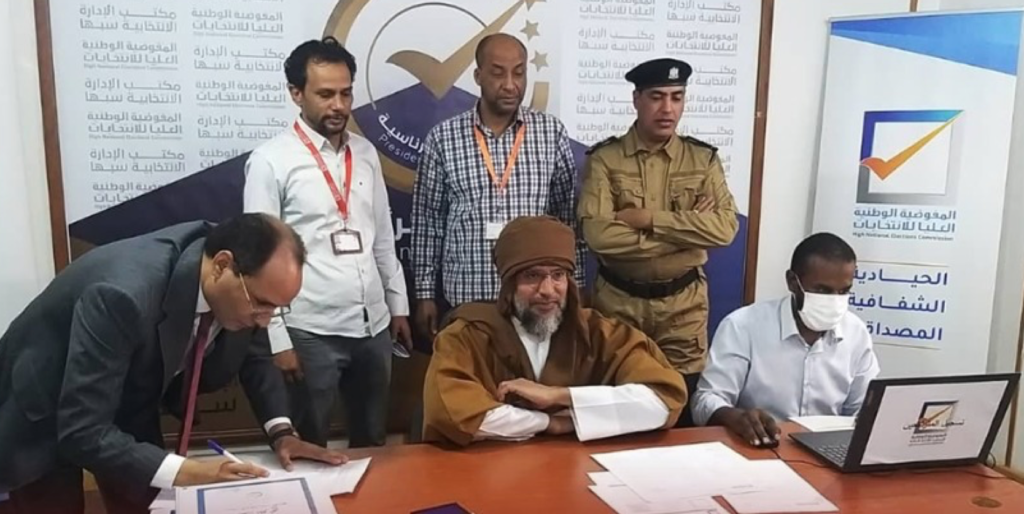
- Nov. 14, the Libyan Presidential Council welcomed the outcomes of the Paris Conference on Libya. In a statement, the Presidential Council said that Paris Conference came at a “critical time, as Libyans are looking to draw the future of their country through a peaceful transfer of power and an end to the division.” The Presidential Council called for holding “simultaneous” presidential and parliamentary elections. It also stressed the need to “take all necessary measures to ensure the transparency and integrity of the elections and to block attempts to rig or overturn them”;
- Nov. 11, the Head of Libya’s Presidential Council (PC), Mohamed Al-Mnifi said that he is ready to hand over power to an elected body after fair and independent elections. These remarks came during his participation in Paris Forum for Peace;
- Head of the Libyan Council of State (HCS), Khaled Al-Mishri called for a boycott of the elections scheduled for Dec. 24. He also called for a sit-in in front of the headquarters of the High National Electoral Committee (HNEC), the United Nations Support Mission in Libya (UNSMIL) and the Libyan Parliament to protest the “flawed” election law. During a meeting in Tripoli with MP’s, HCS members, and mayors, Al-Mishri urged the Libyan people not to participate in the elections as voters or candidates;
- The Spokesman of the Libyan Government of National Unity (GNU), Mohamed Hammouda said Nov. 8, that Foreign Minister Najla Al-Mangoush would continue to work as normal, according to a statement issued by the Cabinet. In press statements, Hammouda added that Prime Minister, Abdel-Hamid Dbaiba has not yet confirmed his participation in the Paris Conference on Libya scheduled to be held on 12 November. He noted that this conference aims to advance the political process and support efforts to implement the ceasefire agreement, in addition to ensuring the equitable distribution of wealth;
- The Speaker of the Libyan House of Representatives (HoR), Ageela Saleh, called on the Libyan people to exercise their constitutional right to freely choose their coming President who will represent them, and lead the country towards safety and stability. In press statements, the HoR Speaker welcomed the announcement of the High National Elections Commission (HNEC) regarding the opening of registration of candidates for Libya’s presidential and legislative elections.
INTERNATIONAL RELATIONS
- Nov. 14, Turkish presidential Spokesman, Ibrahim Kalin, announced that his country’s military presence in Libya is linked to an agreement with the Libyan government. He objected to their designation of foreign forces and placing them on the level of mercenaries of other countries in Libya. Kalin went on to describe his country’s military presence in Libya as a “force of stability.” This was a clear challenge to the outcomes of the Paris Conference on the call for the exit of all foreign forces and mercenaries, according to the plan of the 5 + 5 Joint Military Committee (JMC). He asked about the presence of those he described as Russian mercenaries in Libya saying, “I don’t know what our friends and allies in Europe are doing about it”;
- Nov. 13, the United States (US) Ambassador to Libya, Richard Norland, affirmed that there will be no tolerance for those who think of obstructing the upcoming presidential and parliamentary elections in Libya. In press statements, the US Ambassador stressed the need to hold the upcoming elections without any controversy, and that technical and legal amendments to the election laws should be carried out by consensus among the Libyan leaders;
- Nov. 12, the Tunisia Foreign Minister, Othman Jerandi, held a meeting with Kuwaiti counterpart Sheikh Dr. Ahmed Nasser Al-Mohammed Al-Sabah on the sidelines of their participation at the Paris Conference on Libya. The two ministers discussed their countries’ support for a comprehensive political settlement in Libya, and to create the best conditions for success for the upcoming elections, considering the current stage as a pivotal in the country’s history;
- Nov. 12, the Russia Minister of Foreign Affairs, Sergey Lavrov, said that the participants of the Paris International Conference for Libya confirmed the need to withdraw foreign troops from Libyan territory gradually and smoothly. The same call was made by Greek Prime Minister Kyriakos Mitsotakis;
- Nov. 11, Russia’s Deputy Foreign Minister, Sergei Vershinin met with the Head of the United Nations Support Mission in Libya (UNSMIL), Jan Kubis ahead of the Paris Conference on Libya. The Russian Foreign Ministry said in a statement that the two officials held a detailed discussion on the current situation in Libya, and the political settlement process on the eve of the international conference in Paris. A special focus was placed on maintaining stability on the ground;
- Nov. 11, the UN High Commissioner for Human Rights, Michelle Bachelet announced that former Moroccan Minister of Justice, Mohamed Aujjar has been re-appointed as the Chairman of the Libya Independent Fact-Finding Mission. The appointment came shortly after the adoption of a resolution in October to extend the mandate of the fact-finding mission for nine months, to enable it to fulfil its mandate;
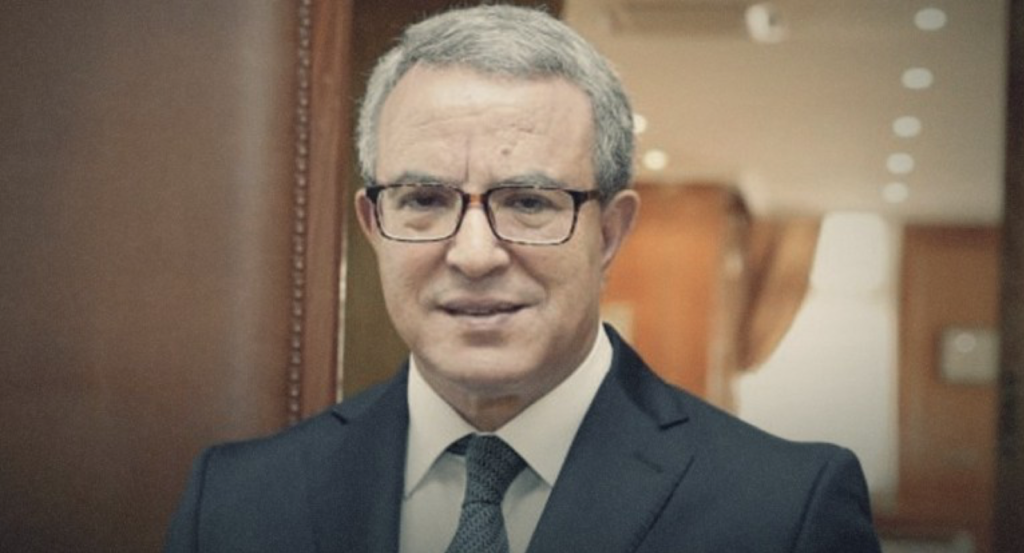
- Nov. 10, the Head of the Egyptian Labor Recruitment Division, Hamdi Emam said that Egyptian workers would be able to return to Libya after the December elections. Emam pointed out that unskilled workers’ salaries would not be less than USD 500 per month, while the salaries of skilled workers will exceed USD 1,000. Engineers’ salaries should range between USD 1,500 and USD 2,000;
- Nov. 10, the United States Africa Command (AFRICOM), announced its support for a political solution in Libya, and the withdrawal of all foreign forces and mercenaries. In a statement, AFRICOM reiterated its support for the US Department of State’s efforts aim to ensure the holding of the upcoming Presidential elections in Libya on 24 December. The elections are seen as an essential step towards normalcy, after nearly a decade of war affecting the country;
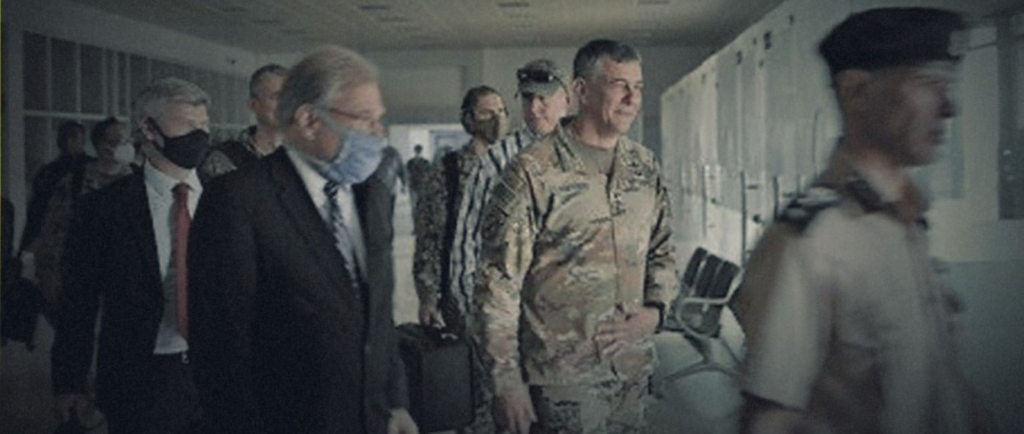
- Nov. 10, Turkish President, Recep Tayyip Erdogan held talks in Ankara with the Head of Libya’s High Council of State (HCS), Khaled Al-Mishri. Yesterday, Al-Mishri announced his opposition to the holding of the December elections, and urged people to boycott. During the meeting, Erdogan and Al-Mishri highlighted the close relationship between the two countries and Turkey’s keenness “to secure lasting peace and prosperity in Libya,” President Erdogan said;
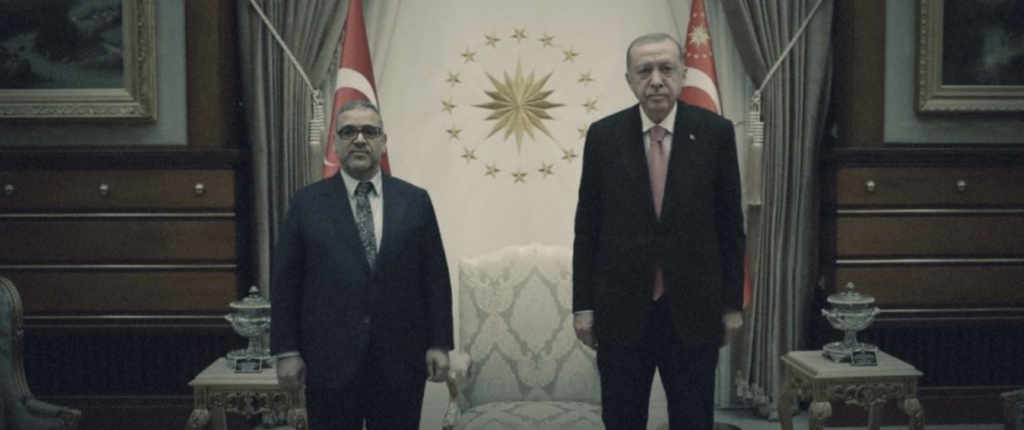
- The Libyan Minister of Oil and Gas, Mohamed Aoun invited his regional counterparts from Europe, North Africa, the Sahel, and the Middle East to attend the Libya Energy and Economy Summit in Tripoli on 22-23 November. The Libyan Oil Minister’s announcement came during his participation in the African Energy Week in Cape Town, South Africa. Notably, Energy Capital & Power (ECP), the organiser of the summit met with Aoun and his team in Cape Town;
- Algeria announced its intention to reopen its embassy in Libya at the end of November, after a closure that lasted nearly 8 years due to the security situation. Suleiman Shanine, Algeria’s Ambassador to Libya reportedly will take up his posting at the end of this month;
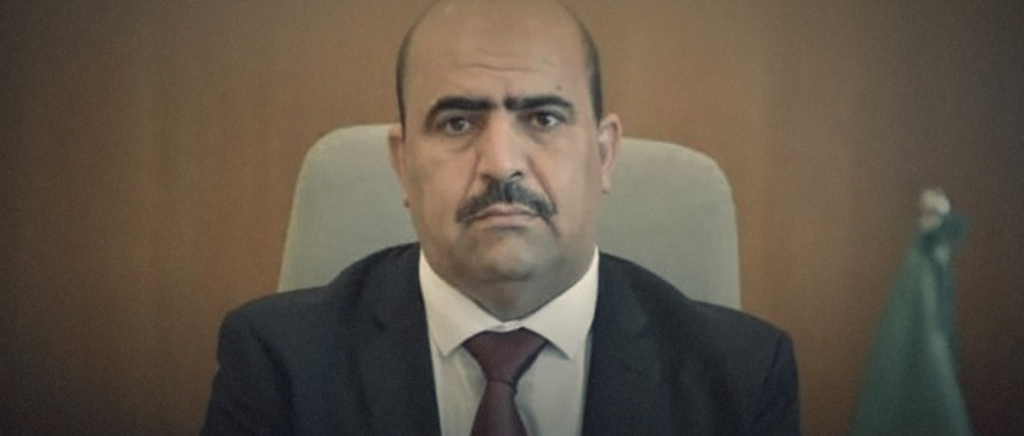
- Moroccan Foreign Minister, Nasser Bourita held a telephone call with his Italian counterpart, Luigi Di Maio to discuss various regional issues. The discussions included the latest developments in the situation in Libya. According to a joint statement published by the Moroccan Ministry of Foreign Affairs, Bourita and Di Maio discussed the most pressing issues facing the region, two days before their participation in the Paris Conference on Libya, set to be held Nov. 12;
- Libya’s Attorney General, Al-Siddiq Al-Sour received the Italian Ambassador to Libya, Giuseppe Buccino, and the Italian Consul, Ernesto Chiquitelli in Tripoli. The meeting dealt with ways to enhance judicial cooperation in criminal matters between the Libyan and Italian public prosecutors. This is by responding to requests for mutual legal assistance submitted by either party. They also discussed requests for mutual legal assistance related to the developments in the case of the killing of Italian migrants in 2015. As well as the results of the investigations by Libya in countering transnational organized crime, including human trafficking;
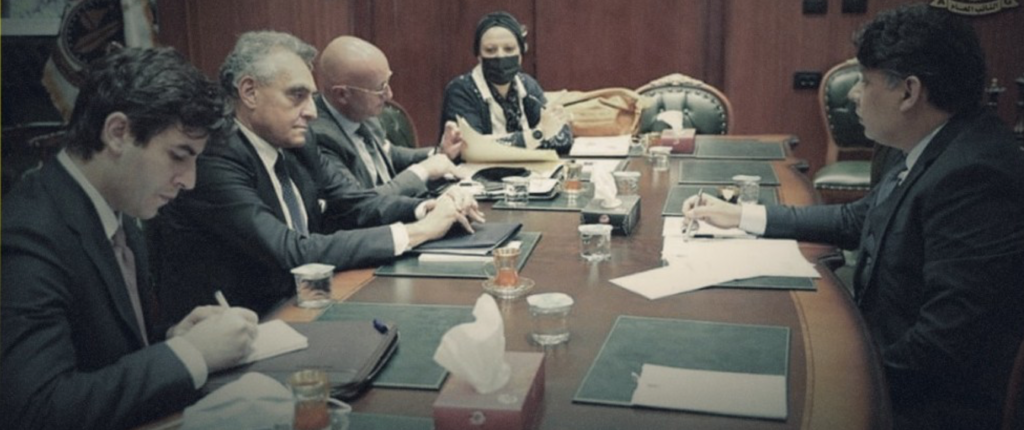
- Nov. 9, Egyptian President, Abdel-Fatah El-Sisi affirmed Egypt’s full support for the political track aimed at settling the Libyan crisis in all bilateral, regional, and international forums. During a telephone conversation with the Head of the Libyan Presidential Council, Mohamed Al-Mnifi, President El-Sisi expressed Cairo’s keenness to strengthen coordination with Libya to ensure the unification of all state institutions;
- Nov. 9, the Second Deputy Speaker of the Libyan Parliament, Ahmed Houma held a meeting in Tunis with France Ambassador to Libya, Béatrice du Hellen to discuss the latest preparations for the elections slated for 24 December. During the meeting, the Ambassador affirmed her support for holding the Presidential and Parliamentary elections on time, in accordance with the laws issued by the Libyan Parliament. They also discussed preparations for the international conference on Libya in Paris, scheduled to be held on 12 November;
- Nov. 9, Algerian President, Abdelmadjid Tebboune received the Vice-President of the Libyan Presidential Council, Mousa Al-Koni and Chief of Staff, Mohamed Al-Haddad on a two-day official visit to Algeria. During the meeting, they discussed ways of enhancing bilateral cooperation, and exchanged views on regional and international issues of common interest, especially with regard to the latest developments in the Libyan political arena. This comes ahead of the long-awaited elections on 24 December, the Algerian presidency announced in a statement.
- Nov. 9, Egypt President, Abdel-Fatah El-Sisi and Jordan’s Crown Prince, Al-Hussein bin Abdullah stressed the importance of uniting the concerted efforts of Arab countries to address the various crises in the region, especially Libya and Syria. The two sides discussed ways to enhance bilateral cooperation, especially in tourism, economy, trade, and small and medium enterprises;
- Nov. 8, Head of Libya’s High National Elections Commission (HNEC), Emad Al-Din Al-Sayeh received the Ambassador of the European Union (EU) to Libya, Jose Sabadell and his accompanying delegation Nov. 8. The two discussed the latest developments in the electoral process scheduled for 24 December, most notably the start of the implementation of the Presidential and Parliamentary electoral processes and distribution of voter cards;

- The US Secretary of State, Antony Blinken confirmed that he and his Egyptian counterpart, Sameh Shoukry confirmed the need for all foreign forces and mercenaries to withdraw from Libya. During a joint press conference in Washington, Blinken also stressed the importance of holding the Libyan elections on time. Shoukry stressed the necessity of holding the Libyan Presidential and Parliamentary elections on their scheduled dates, and the importance of the exit of all foreign forces, mercenaries, and foreign fighters from Libyan territory;
- Nov. 8, Egypt President, Abdel-Fatah El-Sisi held a telephone call with his French counterpart, Emmanuel Macron to discuss the latest developments in Libya. The two discussed the ongoing preparations for the international conference on Libya, which is scheduled to be hosted by France on 12 November. President Macron expressed his keenness to enhance consultations with President El-Sisi on Libya, especially in light of the great efforts being exerted by Cairo towards settling the crisis. He stressed that Egypt has a pivotal role in establishing security and stability in Libya, stressing the keenness of France to continue intensive bilateral cooperation and coordination;
- Nov. 8, the EU called on Libyan parties to work in unity for the success of the upcoming December elections. It described the holding of the elections as a very important step on the path to a permanent peaceful solution to the country’s crises;
- The Spanish Ambassador to Libya, Javier Larrache stated that a large number of Spanish companies want to return to Libya to resume their stalled projects. Larrache pointed out that a number of Spanish companies such as oil giant Repsol have not left the country. He added that “there are other companies that want to return to work in Libya already, or are in the process of doing so.”
